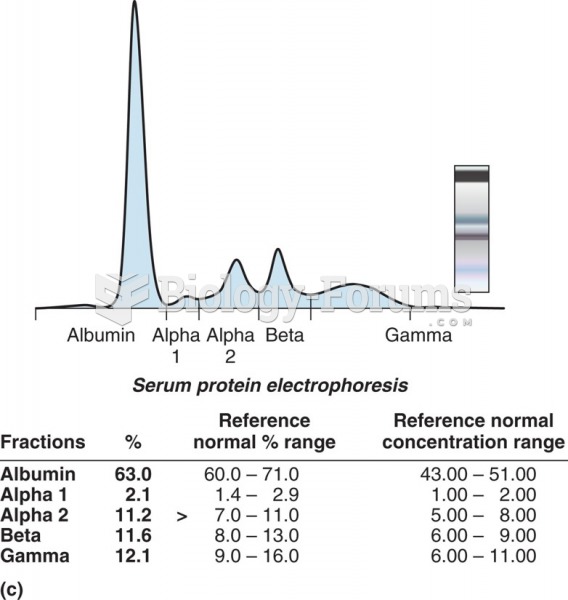|
|
|
Nearly all drugs pass into human breast milk. How often a drug is taken influences the amount of drug that will pass into the milk. Medications taken 30 to 60 minutes before breastfeeding are likely to be at peak blood levels when the baby is nursing.
Prostaglandins were first isolated from human semen in Sweden in the 1930s. They were so named because the researcher thought that they came from the prostate gland. In fact, prostaglandins exist and are synthesized in almost every cell of the body.
Urine turns bright yellow if larger than normal amounts of certain substances are consumed; one of these substances is asparagus.
If you could remove all of your skin, it would weigh up to 5 pounds.
After 5 years of being diagnosed with rheumatoid arthritis, one every three patients will no longer be able to work.







